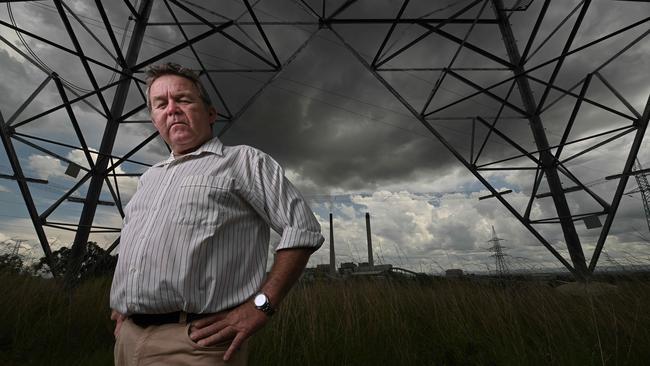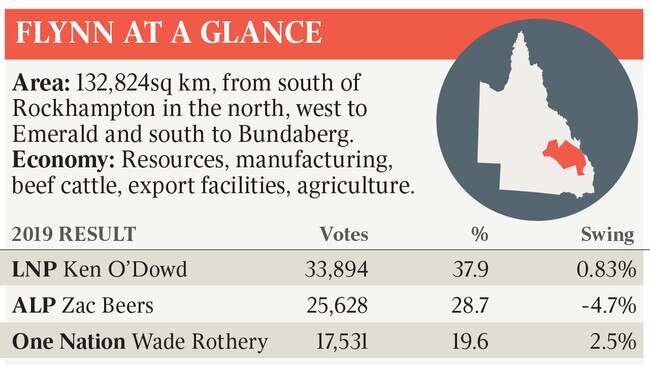Flynn: Rail extension plan keeps coal on track
Push for net zero by 2050 pits Coalition, Labor climate policies against the proposal to expand the Inland Rail line to Gladstone.

The push for net-zero emissions by 2050 has pitted the Coalition and Labor’s climate change policies against the bipartisan proposal to expand the Inland Rail train line to Gladstone.
While the federal government has pledged $10m towards a business case to assess the feasibility of extending the freight line from Toowoomba to Gladstone, a private economic analysis of the proposed route this year found its viability was contingent on the creation of new thermal coalmines in the nearby Surat Basin.
Both main parties insist new coalmines would not be at odds with their emissions-reduction commitments.
In the Gladstone-based electorate of Flynn, both the Liberal National Party candidate Colin Boyce and Labor candidate Matt Burnett – the Gladstone mayor – have backed the extension and the possibility of new coalmines.
Flynn is held with a margin of 7.6 per cent by the LNP’s Ken O’Dowd, who is retiring, and is a key target of Labor in next year’s federal election campaign.
The electorate is dominated by mining, heavy industry and agriculture and is regarded by party insiders as a litmus test for the _climate change policies of both major parties, thrusting issues such as Inland Rail and coal to the forefront of political debate.
The Inland Rail economic analysis prepared this year by consultancy AEC Group for the Central Queensland Regional Organisation of Councils found that the Gladstone extension of the 1700km rail line from Melbourne to Brisbane would be feasible if it factored in the likely development of coalmines in the Surat Basin using the freight line to move their product to Gladstone’s port.
Mr Boyce, who is currently the state MP for Callide, said opening new coalmines to make the rail line feasible was not inconsistent with the Coalition’s pathway to net zero emissions. “Extending the line opens up all sorts of opportunities for other proposals, some of them being coal,” Mr Boyce said.

The government’s “long-term emissions-reduction plan”, released by Scott Morrison in October, said future coal exports would be determined by the international market, not by government.
Similarly, Labor’s policy states that any emissions generated from export coal would count towards the emissions of the country using the coal, rather than Australia’s.
Mr Boyce said coal-fired power stations under construction around the world, and existing power stations such as the one at Callide, west of Gladstone, would rely on Queensland coal.
“There will be a demand well into 2050 for the coal industry in Australia,” he said.
Mr Burnett said he was confident the government’s business case, also backed by Labor, would show the rail line to Gladstone had economic merit with or without new coalmines, particularly through the freight of local resources and produce.
“I’m personally not opposed to new mines,” Mr Burnett said. “I think a business case on the Inland Rail stacks up on its own. “I know there are people across the country who don’t want to see new coalmines, but let’s let the business case determine that.”
Mr Burnett is cognisant of the damage that Labor’s ambivalence toward coal played in Labor’s loss in the 2019 election and the need to assure the industry’s workers of their future. “There are plenty of great employment opportunities in mining and coal-fired power in central Queensland and there are new and exciting industries too,” he said.
Labor senator Murray Watt said the implications for the Gladstone connection for coal and other industries would be considered in that business case.
“Labor will continue to support coalmining and the workers in the industry for as long as there is demand for it,” he said.




To join the conversation, please log in. Don't have an account? Register
Join the conversation, you are commenting as Logout